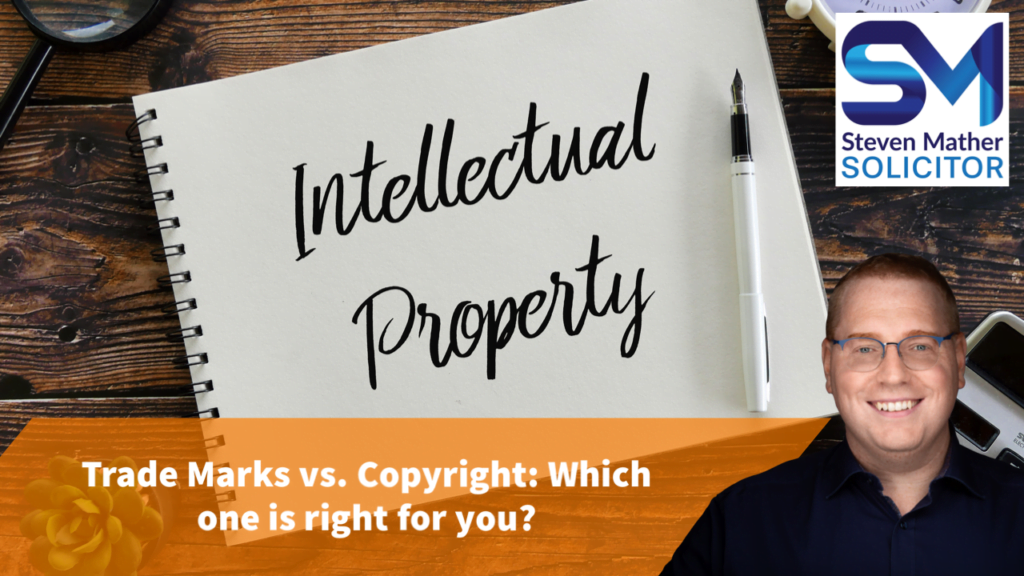Copyrights and trademarks are both important tools in protecting your intellectual property, but knowing what you need can be confusing. If your business creates unique products, you need to know the difference between the two and how to protect your company.
What’s the difference between copyright and trademark?
Copyright
Generally, copyrights protect creative or intellectual works. In the UK, there is no requirement to register a copyright.
Copyrights primarily protect the rights of people who create literary, dramatic, musical, artistic, and certain other intellectual works (like science tests and software code).
- original literary work
- dramatic work
- musical work
- artistic work
- sound recordings
- films
- broadcasts, and;
- the typographical arrangement of published editions
- copy the work
- issue copies of the work publicly
- rent or lend the work publicly
- perform, show or play the work publicly
- communicate the work publicly
- adaptation the work
Trademarks
Trademarks must be registered in the UK. They typically apply to commercial names, phrases, and logos. Trademarks also protect the use of a company’s name and its product names, brand identity (like logos) and slogans.
The main difference between copyright and a trademark is that a trademark protects the unique identification of a brand or product (e.g. the logo of a brand) and must be applied for. Copyright prevents copying, reproduction, or distribution of specific work (such as music, written words, performances, and films) and is gained automatically if certain criteria are met.
- being represented in the register in a manner that enables the registrar and other competent authorities and the public to determine the clear and precise subject matter of the protection afforded to the proprietor, and
- distinguishing goods or services of one undertaking from those of other undertakings.
- words / names
- designs
- letters
- numerals
- colours
- sounds
- shape
By registering your trademark, you can ensure that your brand and the reputation of your business are protected from harm by other parties. In order for your trademark to be successfully registered, you will need to satisfy a number of criteria, including that the mark is distinctive and is a single word, logo, picture or any mixture of these. It must also be different from previously registered trademarks and cannot be a common name or place name.
Most established businesses will rely on both registering trademarks and copyright law to protect their intellectual property.
Find out more about trademarks here.
What is copyright infringement?
Copyright infringement occurs when another party uses, copies, distributes, or otherwise uses work to which they are not entitled to do so. This may be in a physical or digital form. Copyright infringements may include:
- using copyrighted images gathered on the internet on a website
- taking text from another website and using this without permission
What is trademark infringement?
- using the same mark as a registered trademark on the same type of goods or similar goods
- using a similar name, product design, packaging design, or logo as an already established brand
Protecting your brand and work
If you have a brand or work you need to protect, I recommend that you firstly review your existing IP protection strategy – including identifying which marks need to be registered and whether you have sufficient measures in place to detect breaches of any copyrights you own.
It’s a good idea to seek the advice of a specialist (i.e. Steven Mather) – who can advise you on how best to protect your interests in terms of copyrights and trademarks.
Feel free to give me a call on 0116 3667900 and have a chat about your requirements or get in touch this way. I am always happy to help.

